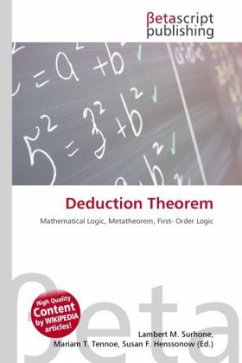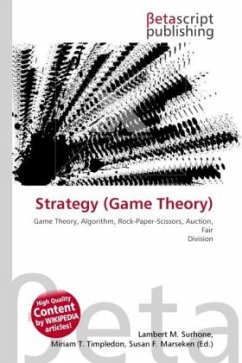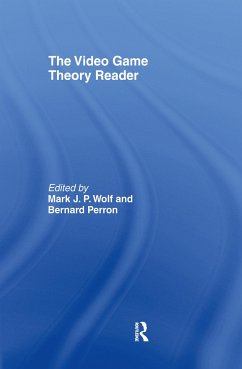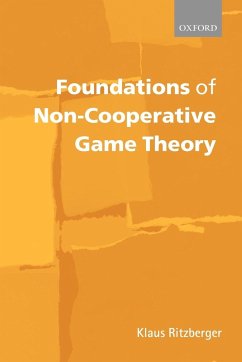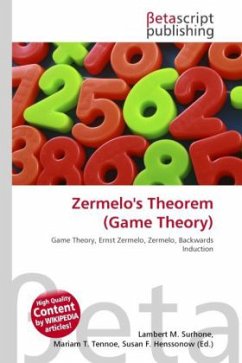
Zermelo's Theorem (Game Theory)
Versandkostenfrei!
Versandfertig in 6-10 Tagen
30,99 €
inkl. MwSt.

PAYBACK Punkte
15 °P sammeln!
High Quality Content by WIKIPEDIA articles! In game theory, Zermelo's theorem, named after Ernst Zermelo, says that in any finite two-person game of perfect information in which the players move alternatively and in which chance does not affect the decision making process, if the game cannot end in a draw, then one of the two players must have a winning strategy. Zermelo's theorem has become mathematical folklore. Throughout literature in the last century, variations of the theorem has appeared in several forms. Some claimed that Zermelo proved something that he did not, namely that chess, or ...
High Quality Content by WIKIPEDIA articles! In game theory, Zermelo's theorem, named after Ernst Zermelo, says that in any finite two-person game of perfect information in which the players move alternatively and in which chance does not affect the decision making process, if the game cannot end in a draw, then one of the two players must have a winning strategy. Zermelo's theorem has become mathematical folklore. Throughout literature in the last century, variations of the theorem has appeared in several forms. Some claimed that Zermelo proved something that he did not, namely that chess, or a more general class of game, was determinate. Others claim he used a method of proof, known as 'backwards induction' that was not employed until 1953, by von Neumann and Morgenstern.



